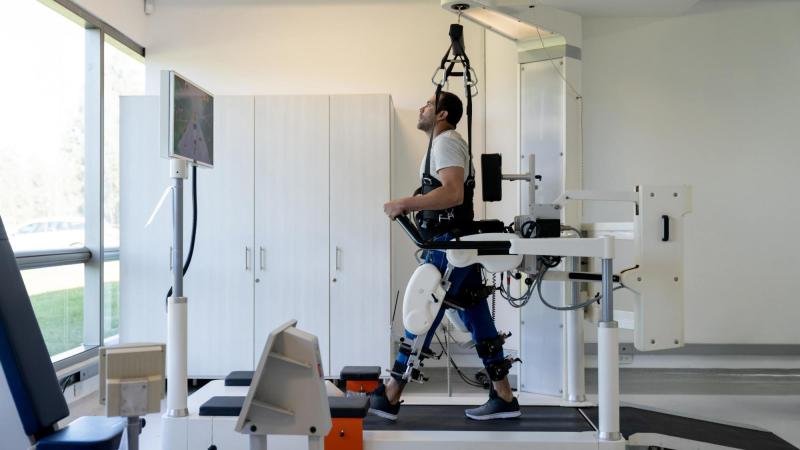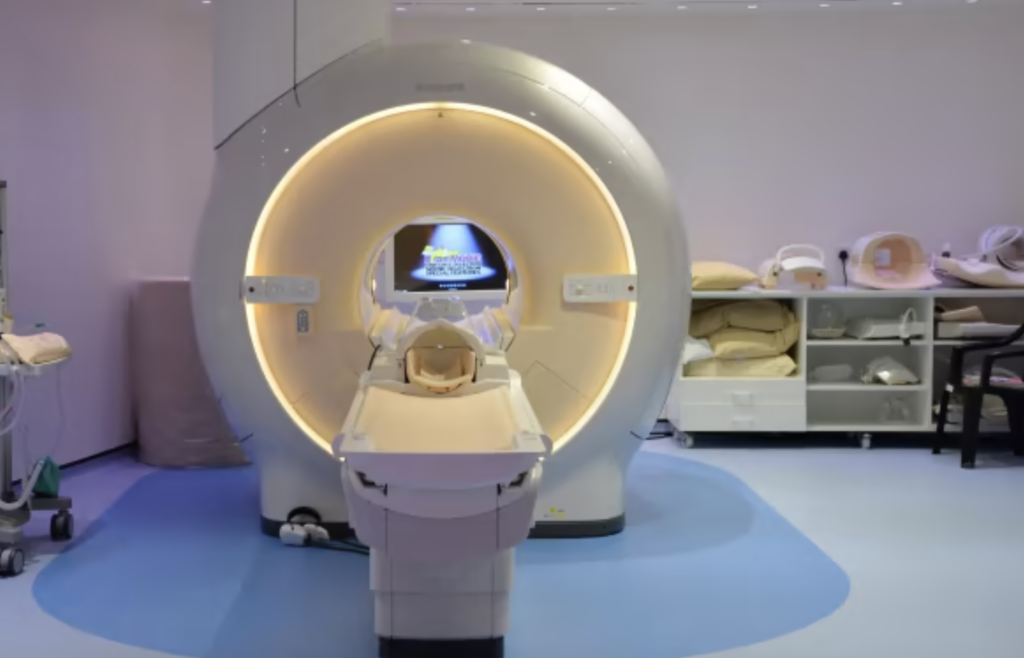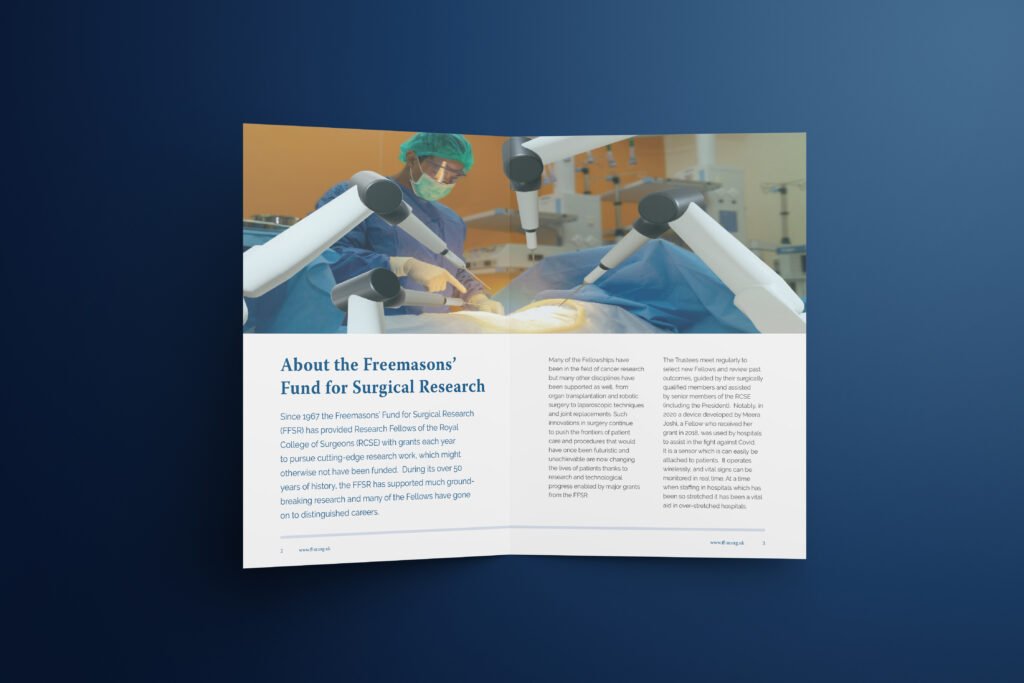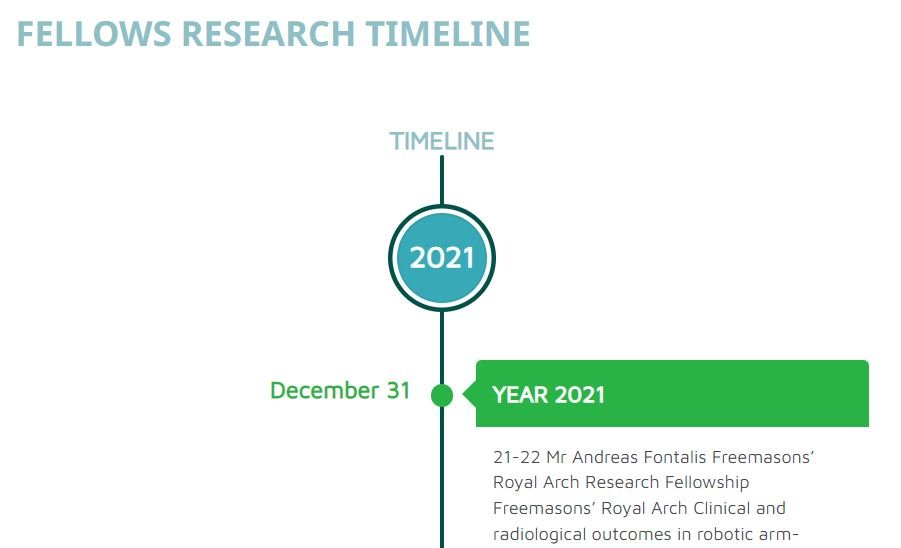We will use exciting new experimental techniques to grow stomach cells obtained from patients who have atrophic gastritis in the laboratory. We will then test how gastrin (a stomach hormone which is present in higher than normal amounts in patients with atrophic gastritis) affects the growth and behaviour of these cells. Precancerous changes can exist for a number of years and by dissecting the process we can identify points of intervention and treatment. These points could be targeted in clinical trials in the future for the development of personalised medicine or used in screening programmes for early detection of gastric cancer.
The Freemasons’ Fund For Surgical Research
The Freemasons’ Fund for Surgical Research (FFSR) is a charitable organisation that provides grants to Research Fellows of the Royal College of Surgeons (RCS England) to pursue groundbreaking research projects.
With over 50 years of history, the FFSR has played a vital role in supporting innovative research that might not have received funding otherwise.
The FFSR, funded entirely by Freemasons, has donated over £5.9 million to the RCS England since 1967, with the current value of the fund being approximately £7 million. The fund’s mission is to support the RCS England’s clinical research and contribute to the advancement of surgical knowledge and patient care.

100%
Of the fund has been donated by Freemasons
£1M+
£2.4M
£6.6M
We aim to investigate EV-microRNAs as clinically-useful biomarkers in the blood and liver-bile, for patients first presenting with jaundice (yellow skin), and undergoing endoscopy to relieve the bile-duct blockage possibly due to a tumour. New biomarkers will hopefully improve the speed and accuracy of cancer diagnosis, enhance clinical decision-making, and allow more personalised treatment strategies.
Changing Lives with Surgical Research
Research allows new techniques and technologies to be developed, evaluated and implemented into clinical practice as quickly and safely as possible. Furthermore, research has a role to play in improving processes and the way healthcare teams work to enhance patient recovery and maximise the efficiency of healthcare delivery, reducing NHS costs.
Supporting our Work
Prudent investment over the years has preserved the capital value of the Fund but it is becoming increasingly difficult to maintain it in the current financial market and in the meantime the cost of supporting Fellowships increases at a faster rate than inflation.





